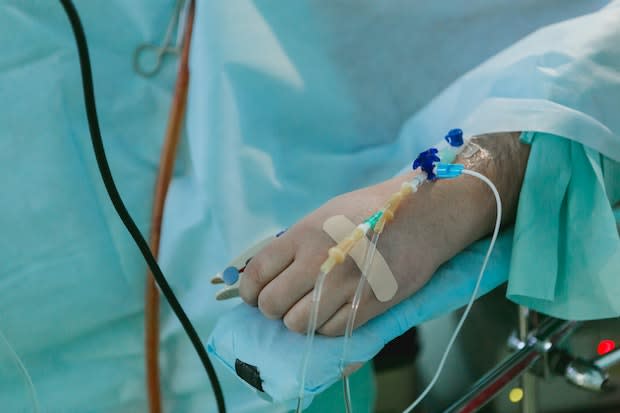Table of Contents
II. Keep Appointments & Listen to Your Doctor
V. Control Your Anesthesia Symptoms
Anesthesia Usages
Almost everyone will have to go under anesthesia at some point in their life. Anesthesia is a modern medical marvel, allowing doctors to perform surgeries big and small. We may not have to feel pain or discomfort during an operation, but the after-effects of serious procedures are sometimes hard to shake.
There are several different types of anesthesia, and not all of them require a patient to be fully unconscious. The severity of your treatment will depend on the type of anesthesia you receive. If you need some stitches or a biopsy, local anesthesia will be used, but if you need a heart procedure or a more invasive procedure, general anesthesia will be used. General anesthesia will render a person fully unconscious, and a medical team will monitor the person’s breathing and vital signs to ensure they remain safe under anesthesia. Once a person wakes up from this type of anesthesia, they may experience several side effects, including: Everyone reacts to anesthesia differently, and some people may use medications after a procedure to reduce the effects of anesthesia. Depending on the type of surgery you undergo, your doctor may prescribe Transderm Scop (scopolamine) or Zofran (ondansetron) to reduce side effects. There are also several other things you can do after your surgery to improve your recovery time. Read on to learn more about anesthesia recovery tips. [1] It may seem redundant, but it is essential to listen to your doctor’s instructions after a serious surgical procedure. Some patients may feel like instructions are meaningless and may not apply to them, but that is not the case. There are very good reasons for these instructions because performing certain activities may damage surgical bandages or stitches. Often, doctors will tell patients not to take baths or swim after surgeries. If you do not understand why your doctor or nurse gives you instructions, inquire to learn more about how these instructions affect you. It is also important to keep all of your follow-up appointments after your procedure. Some patients may think that their wounds are healing well and that appointments are a waste of time and money, but that is not the case. Your doctor is the only one who knows what your wounds are supposed to look like in the healing process, and they will examine your incisions properly. This is especially true if your surgery is not visible to the patient, like a vaginal hysterectomy. Your doctor will also perform follow-up blood work to ensure you are coping well after receiving anesthesia and ask if you have any side effects. [2] If you are experiencing anesthesia symptoms after your surgery, you may want to change your diet to reduce side effects and improve your recovery time. You will want to avoid saturated fats like meat and dairy because these foods may increase the risk of cholestasis, which is a condition that makes it harder for the body to eliminate fat-soluble toxins that are present in anesthetics. You can implement more fiber in your diet like oat bran, apples, pears, and legumes. You can also eat foods like: These foods contain detoxifying compounds that may help you recover quicker from anesthesia. Eating garlic, onions, and egg yolks may also help your liver clear any remaining toxins present from the lingering anesthesia drugs. [3] If you are not drinking enough water, the anesthesia drugs' chemicals may linger in the body longer. If you are fresh out of surgery, you may want to drink six to eight eight-ounce glasses of water every day. It is important not to wait until you are thirsty to drink because this signifies mild dehydration. If you are not used to drinking this much water, you can set an alarm to remind yourself to have a glass of water every two hours. Remaining properly hydrated also allows your body to function properly while in recovery. If you are dehydrated, your body is working harder to supply nutrients to all its parts, which can slow down your recovery. [3] Sometimes, natural ways to improve your post-surgery symptoms may not be enough. At your follow-up appointment, you can ask your doctor for medications like Transderm Scop (scopolamine) or Zofran (ondansetron). Transderm Scop works to prevent nausea and vomiting caused by surgery or motion sickness. This medication is a patch that can be applied to an area of clean and dry skin behind the ear. It releases medication over three days that correct the natural substances that create a feeling of motion sickness in the body. [4] Zofran is a slightly different medication used to prevent nausea caused by surgery and cancer treatments like chemotherapy and radiation therapy. This drug is taken orally around thirty minutes before your cancer treatment to block serotonin's action that causes vomiting. Zofran has also been shown to prevent common complications of post-surgery, including shivering. It is essential to take these drugs as recommended and stop taking them once your doctor tells you. Having a serious surgery may take you off your feet for a few days, but following these few tips may get you back to normal in a shorter period. [5] The content in this article is intended for informational purposes only. This website does not provide medical advice. In all circumstances, you should always seek the advice of your physician and/or other qualified health professionals(s) for drug, medical condition, or treatment advice. The content provided on this website is not a substitute for professional medical advice, diagnosis, or treatment.
Keep Appointments & Listen to Your Doctor
Alter Your Diet

Drink Plenty of Water

Control Your Anesthesia Symptoms
